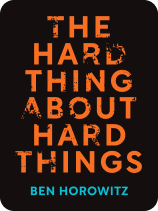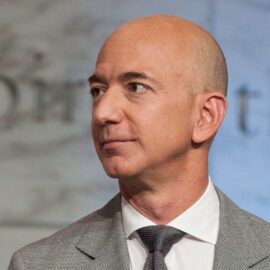

This article is an excerpt from the Shortform book guide to "The Hard Thing About Hard Things" by Ben Horowitz. Shortform has the world's best summaries and analyses of books you should be reading.
Like this article? Sign up for a free trial here .
How did Ben Horowitz go from managing software companies to starting the venture capital firm Andreessen Horowitz? Why was the company so successful?
Ben Horowitz, author of The Hard Thing About Hard Things, didn’t know what to do after he sold Opsware in 2007. He wanted a change of career but didn’t want to waste all the knowledge he gained as a CEO. His solution was to start a venture capital firm to help entrepreneurs realize their dreams.
Keep reading to learn more about the Andreessen Horowitz venture capital firm.
Ben Horowitz Starts Venture Capital Firm Andreessen Horowitz
After selling Opsware in 2007, Ben spent a year working at HP thinking about what to do next. He’d now gone through a company’s entire life cycle, from founding to going public to selling, and he felt it was time to retire from operating a business. But he’d learned so much, and not using this knowledge seemed like a waste.
Then he had an idea, which would eventually become the Andreessen Horowitz venture capital firm. He wanted to help other entrepreneurs through the same struggles he faced. Why didn’t every founder know the mean score of a CEO was 22? Why did every founder seemingly have to struggle alone to hire, fire, promote, and scale?
Venture capitalists, the investors of companies, were theoretically supposed to help founders through their struggles. But in reality, they often saw founders simply as inexperienced beginners to be replaced by professional management as soon as possible. Ben faced this personally when raising money for Loudcloud—an investor asked when they’d be bringing in a “real CEO,” “someone who knows what they’re doing.” He was initially crestfallen to hear this, but he learned the ropes and became a competent CEO. Now, coming out of Opsware, he wanted to help other entrepreneurs get better too.
A New Kind of Firm
The way he thought he could best achieve this vision was through a new kind of venture capital firm that placed the entrepreneur first. He wanted to solve the classic problems of venture capital firms then:
- The investors often had no experience operating businesses, so they didn’t know what founders were going through and couldn’t help them through tactical problems.
- A venture capital firm operated more like a collection of independent agents—individual investors kept their own network siloed and sought the best deals for themselves.
- The best-performing venture capital firms were kept in place by a virtuous cycle—they got the best deals, which guaranteed they’d get the best returns, and so on. This made it hard for any new VC firm to crack into the top tier.
Marc Andreessen Joins
Ben reached out to his old co-founder Marc Andreessen, who had the same interests. They strategized how to build the firm they would have wanted as entrepreneurs:
- They would be supportive of entrepreneurs. They knew that technology companies like Apple and Google were best run by the founders who knew the core technology and market. Removing founders from companies like these was a bad idea—they should train the founders to be good CEOs instead.
- For their general partner roles, they would only hire people who had experience operating real companies.
- They would build a unified set of resources across the firm, sharing them between portfolio companies and investors. This included people networks (consisting of executives, engineers, corporate partners, press, investors, and acquirers) as well as skills training.
- To get over their lack of reputation compared to old storied firms, they decided they’d win simply by word of mouth. If they treated their founders right, their founders would recommend other founders.
They launched their VC firm Andreessen Horowitz in 2009. Their firm was new, but he and Marc weren’t—Marc especially was a technology legend for having developed Mosaic and Netscape. Building off this credibility, they kicked off a PR campaign to great effect, landing a cover in Fortune magazine.
Instant Success
Having now been a manager for over a decade, Horowitz was now primed to take everything he’d learned to build his firm. He knew to hire for strengths and not for lack of weakness; he knew to build a culture around the right values; he knew how to make teams work with each other to achieve the common vision. Most importantly, he knew how to coach founders through the struggles he’d faced as a CEO.
Andreessen Horowitz became a top-tier firm within just a few years—a feat previously unimaginable in the entrenched venture capital industry.
In closing, Ben gives a reminder that building a company will be a struggle. But greatness is created through the struggle. And if you endure the struggle and trust your ability to overcome it, you may just make your dreams real.

———End of Preview———
Like what you just read? Read the rest of the world's best book summary and analysis of Ben Horowitz's "The Hard Thing About Hard Things" at Shortform .
Here's what you'll find in our full The Hard Thing About Hard Things summary :
- What it was like to head a company through the dotcom bubble and subsequent burst
- Why failing is normal
- How to build a good place to work






